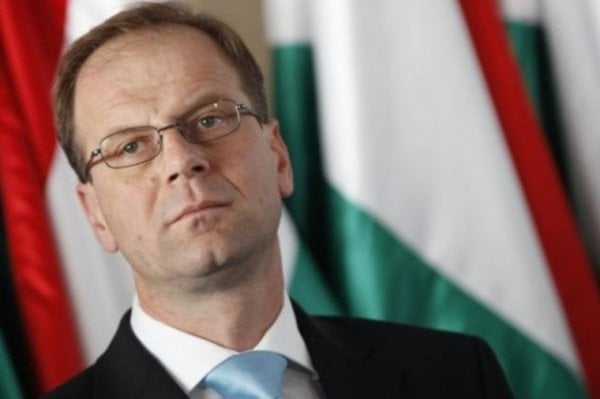People
Right-Wing Politician Named EU Culture Commissioner


Alexander Forbes

Hungary’s foreign minister, Tibor Navracsics has been revealed as the European Union’s chief policy maker for cultural affairs, Hungarian website Portfolio has reported.
When he assumes office for a five-year term on November 1, Navracsics will be responsible for the EU’s policies on education, culture, youth, and citizenship. He served as Hungary’s justice minister until June 1 of this year and has a background in comparative politics.
European Commission president-elect Jean-Claude Juncker’s choice of Navracsics for the cultural post went contrary to previous reports that suggested the 48-year-old lawyer would serve either as the commissioner for trade or as the commissioner for customs.
Adding to the surprise of Navracsics’s appointment are previous clashes with the EU Commission over recent, controversial laws enacted by his Fidesz party in Hungary, which were viewed as limiting media and artistic freedoms. The new Commissioner of Culture is more moderate in his views than Hungarian Prime Minister Viktor Orbán, but the shift in the country has been dramatic.
As the New Yorker described in a lengthy profile on the rise of the far right and nationalistic sentiments in the country:
“The current Prime Minister, Viktor Orbán, has rebranded Fidesz, once a liberal youth party (with the vintage countercultural slogan “Don’t trust anyone over thirty-five”) as a right-wing Christian nationalist organization. […] The courts are being packed with government loyalists, and media is scrutinized for “balance,” with the threat of crippling fines for those deemed to have strayed. Dozens of “opposition” journalists have been fired from state-run media […] The new constitution “recognizes the role of Christianity in preserving nationhood,” and art that is deemed blasphemous or “anti-national” is now the target of a full-blown campaign of suppression.”
According to a statement made by the European Commission president-elect Juncker, Navracsics’s mission is to focus on the cultural space as a source of economic growth and to expand the vision of European culture to that of a more diverse Europe. Hailing from one of the union’s most recent entrants—Hungary joined in 2004—Navracsics likely understands the assimilation issues felt by some newer member states well. The extent to which he can divorce himself from his home country’s internal struggles with the issue, however, remains to be seen.